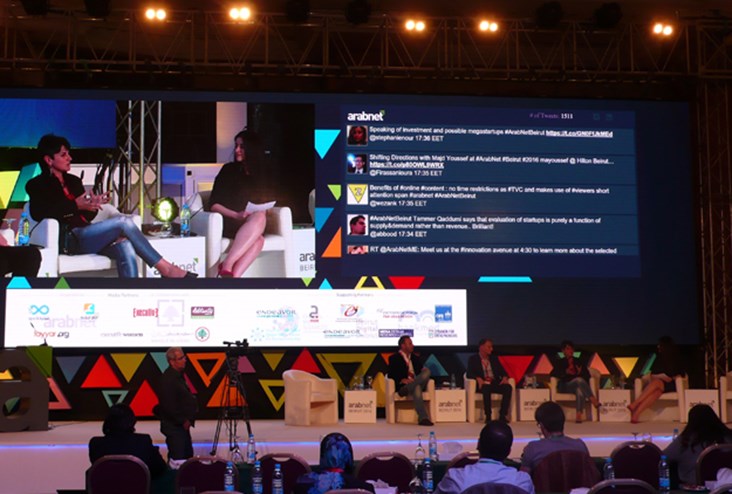Smaller Screens Conquer the Video Production Industry - ArabNet Beirut 2016
Back
Screens may have gotten smaller over the past few years but opportunities for creators of digital content are increasing. The MENA region has advanced to become the second largest international consumer of YouTube content.
The bulk of the video content created in the region originates from Lebanon, Egypt, Syria, and Jordan, while the Gulf region is increasing its output. A large majority of Arab nationals – about one in ten – consume film, television and music and online content produced in the MENA region.
Producers looked at developments, trends, and perspectives for TV and online production during a panel at ArabNet Beirut 2016.
Smaller Screens Do Not Equal Smaller Budgets
Panelists agreed that there is a misconception that production for online content is somehow cheaper. One example is the interactive dual-story Honda campaign, which was very expensive in the making.
“There is this misconception clients tend to have that online comes cheaper. However, the props and wardrobe costs, for example, are the same,” said Denise Jabbour, Creative Producer at Home of Cine-Jam.
“Most clients do special edits for YouTube and adapt traditional video content,” said Tarek-Gabriel Sikias, Producer and Partner at Laser Films, adding that there were also productions aimed solely for online.
The big budget may still be on TV, but trends are shifting slowly, though not as fast as in other parts of the world. Gabriel Chamoun, CEO and producer at The Talkies explained that the allocated budget is the same but consumer experience changes as the restrictions that guide TV fall away.
"Two minutes for TV is strictly two minutes,” he said, adding that online allows for extra time and there is always the possibility of extra audiences too, if online content goes viral.
Local Content and Good Stories
Slight changes in duration and form (through different edits, for instance) do not seem to change audience reactions and adherence. What counts is telling a good story. “If you have a great story, people will watch it,” said Chamoun.
Eli Khoury, Chairman and CEO of Qantum Media, echoed this in an interview earlier at the conference: “We’re faced with a lack of scripts. The writing has degenerated.” Khoury added that content needed to be local, conceding that there was effectively insufficient support for writers.
Chamoun has hope in talented, young writers who will in the future produce work in a collaborative way.
In parallel user-generated content is ever increasing, requirements towards brand-building done in a professional way, remains the same.
The Netflix Factor
Although there are a number of local VOD platforms, Netflix, now available in the MENA, has bigger budgets that will revolutionize content but also up the stakes and standards, resulting in better productions. This will have an impact on local TV stations, notably when it comes to series.
“All channels with follow their lead – online is the future,” Jabbour argued. “The lines are getting blurred between linear TV and online,” Chamoun concurred.
Watch the full panel below:
Latest Business
Intelligence Report














